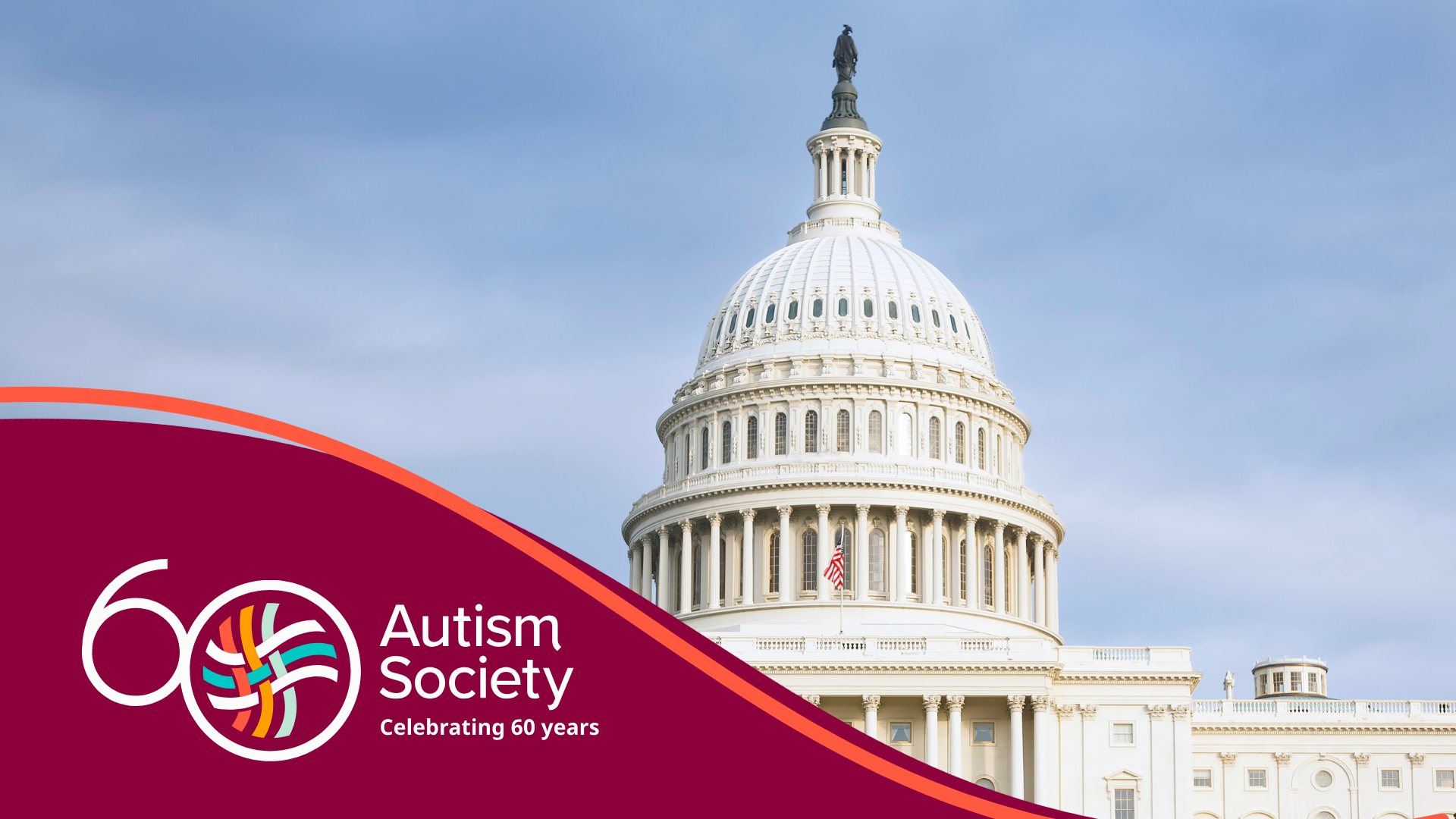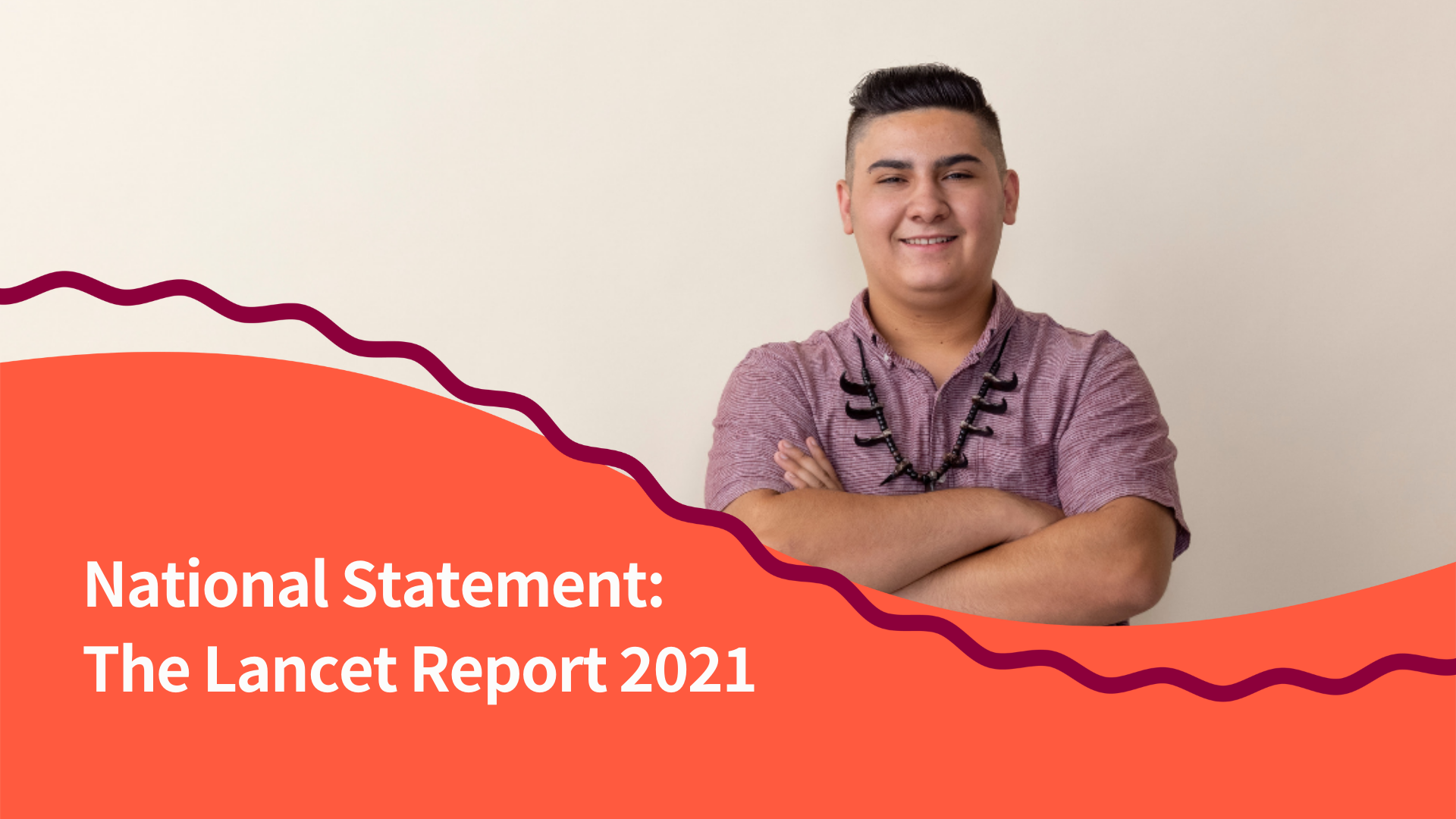
In this issue of Capitol Connection, learn more about the status of the shutdown and funding for Fiscal Year 2026. In addition, find updates on the Reductions in Force at the Department of Education and the upcoming work requirement under Medicaid expansion.
We encourage you to visit the Autism Society’s Action Center to connect with your Members of Congress on key issues and, if you are able, please consider supporting our state and federal advocacy work with a gift during this critical time. Please donate here to keep our critical advocacy work going! Your partnership is essential as we continue fighting for meaningful policies, resources, and protections for our community.
Government Shutdown Update
The federal government shutdown began on October 1 and ended on November 12 following passage of a bipartisan funding package in Congress.
Over the past few weeks, the U.S. Senate worked to negotiate an agreement to reopen the government. On November 10, the Senate passed a funding package that includes three appropriations bills covering Agriculture, the Legislative Branch, and Military Construction and Veterans Affairs programs for Fiscal Year 2026. The legislation also provides a continuing resolution (CR) to fund the rest of the federal government through January 30.
This means that Congress must pass the remaining appropriations bills, including the Labor, Health and Human Services, and Education bill, by January 30 to avoid a partial shutdown.
The agreement ensures that federal employees who were furloughed or required to work without pay will receive full back pay. It also reverses layoffs that occurred since October 1. In addition, the Supplemental Nutrition Assistance Program (SNAP), formerly known as food stamps, will be funded through September 2026, resolving one of the more contentious points of negotiation. The Administration’s initial opposition to extending SNAP funding during the shutdown highlights the need to avoid similar situations in the future.
However, the package does not address the expiring enhanced health care tax credits under the Affordable Care Act (ACA), which was one of the main issues that led to the shutdown. Senate Republican Leader John Thune (R-SD) has reportedly committed to holding a vote on the extension of these subsidies by mid-December. Without congressional action, many individuals and families could see their premium payments more than double. (See this KFF report for more information and remember that the deadline to enroll in the Marketplace is December 15).
The House of Representatives was called back into session on Wednesday, November 12, marking their first day back after more than 54 days away. The House approved the funding package by a vote of 222 to 209, and the President signed it into law shortly thereafter, officially reopening the federal government.
Department of Education Reduction in Force Update
Following the significant reduction in force that disproportionately affected the Office of Special Education and Rehabilitative Services (OSERS), the Autism Society of America joined 60 organizations in requesting an oversight hearing. The request was directed to Senate Health, Education, Labor, and Pensions Committee Chairman Cassidy (R-LA) and Ranking Member Sanders (I-VT), as well as House Education and Workforce Committee Chairman Walberg (R-MI) and Ranking Member Scott (D-VA).
Although some of these layoffs are reversed by court orders or by the recent government reopening package, there are multiple reports that the Department of Education is considering transferring special education programs to the Department of Health and Human Services. A Department spokesperson stated that they are “exploring additional partnerships” with other federal agencies to support these programs.
Given this potential shift, the requested oversight hearing remains important to provide transparency and gather information on how such a plan would be implemented.
Letter on Work Requirements
The Reconciliation Package that passed over the summer requires states to begin implementing community engagement requirements, also known as work requirements, for individuals who qualify for Medicaid through expansion. States must start implementing federal Medicaid work requirements by January 1, 2027, but they may implement them earlier through waivers or state plan amendments.
The Autism Society joined a letter with 50 other organizations urging the Administration to use guidance and rulemaking to provide maximum protection for people with disabilities, older adults, and caregivers from coverage loss or disruptions. Millions of people with disabilities, including individuals with substance use disorders and mental health conditions, qualify for Medicaid through the expansion. It is crucial that these work requirements do not create barriers to access. The Autism Society will continue to monitor this process closely.
Department of Health and Human Services Autism Updates
New reporting from Reuters shows that HHS Secretary Robert F. Kennedy, Jr. has walked back previous claims linking prenatal Tylenol use to Autism. The Secretary clarified that current evidence does not show Tylenol definitively causes Autism, but he advised that it should still be used cautiously during pregnancy. This statement underscores the need for careful interpretation of scientific studies and highlights the importance of relying on well-established research when making health recommendations. Autistic individuals and families deserve guidance based on rigorous, peer-reviewed science rather than speculation or rushed conclusions.
Last week, the American Academy of Pediatrics (AAP) issued interim guidance to not recommend leucovorin (folinic acid) for routine use for Autistic children. While small studies have explored potential benefits, there is not enough robust evidence from large clinical trials to support leucovorin as a treatment for Autism. The AAP’s guidance reflects a broader principle: treatments for Autistic individuals should be grounded in strong scientific evidence and carefully evaluated for safety and effectiveness. Recommendations that are premature or based on limited data can cause confusion, wasted resources, and even harm to children and families.
See the Autism Society’s statement on this issue from September: https://autismsociety.org/autism-research-should-be-driven-by-evidence-not-blame/
New Report on Caregiving State-by-State
AARP and the National Alliance for Caregiving released their updated state by state report on Caregiving, highlighting both the similarities and differences in the experiences of family caregivers across the United States. The report examines the 63 million family caregivers who care for adults or children with complex medical conditions or disabilities. Caregiver prevalence ranges from 20 percent in Washington, D.C., to 34 percent in Mississippi, with a national average of 24 percent.
Key findings include:
- Nearly half of caregivers provide extensive daily assistance and spend many hours each week on care.
- Many experience financial strain and have difficulty accessing affordable support services.
- Access to paid caregiving depends on state policies, leaving many unpaid despite high-intensity roles.
- Balancing work and caregiving are difficult, especially for hourly workers.
- Caregivers face emotional stress and health challenges, and healthcare systems often overlook their needs.
The report highlights the need for stronger support for family caregivers across the country.
Share:




